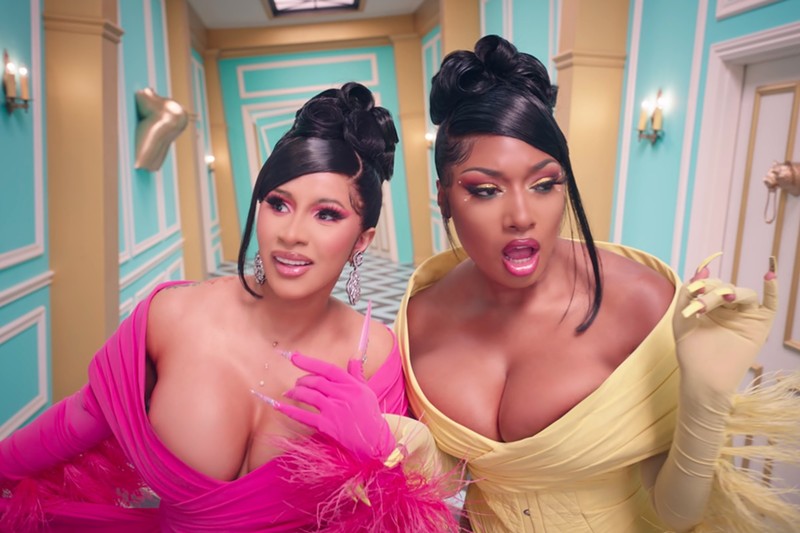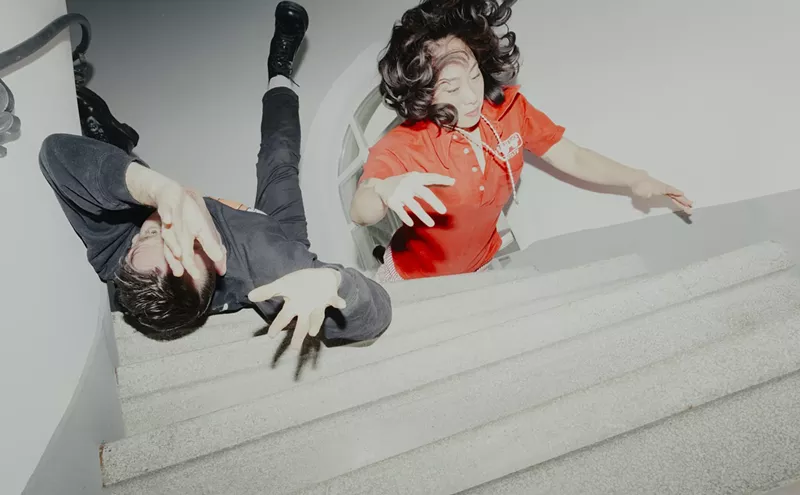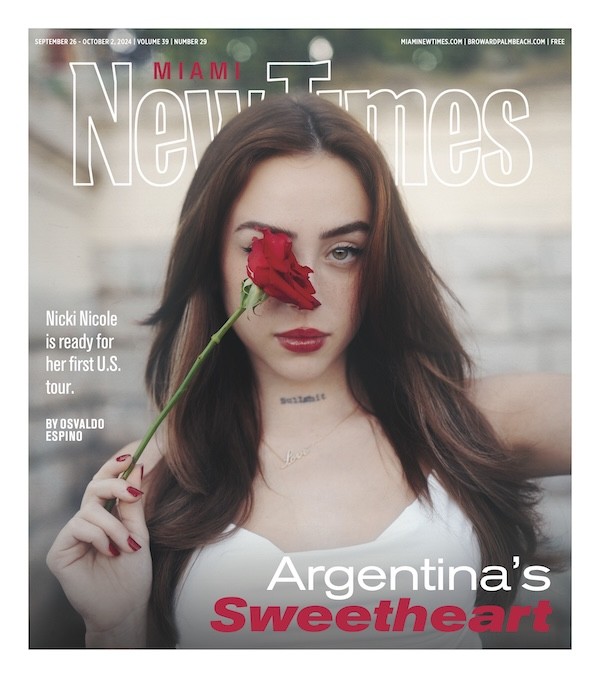As the gates to the "WAP" mansion swing open and transport the viewer into Cardi B and Megan Thee Stallion’s gaudy playhouse, the Frank Ski’s “Whores in this House” sample embodies their brash verses and the music video’s seduction. Almost simultaneously with the video’s premiere back in August, the floodgates opened to Internet criticism about the song and video’s X-rated content and the question of whether the two women took the notion of championing their bodies and sexuality too far.
In op-eds defending "WAP" and the video, cultural critics pointed to the misogyny and sexism embedded in the critiques, a constant for female rappers in an industry laden with male gatekeepers.
Even politicians weighed in. James P. Bradley, a Republican congressional candidate in California, tweeted that he "felt sorry for future girls if this is their role model.”
Despite all the sexist sneering, 2020 was a year in which women rappers dominated.
Flo Milli, Mulatto, Sukihana (who made a memorable cameo in the "WAP" video), and Bbymutha charmed fans with debut projects, while follow-up albums from Megan Thee Stallion and City Girls proved they have a long-term stake in hip-hop. And as much as fans applaud these artists for their unabashed reclamation of female sexuality, the scope of freedom for women in hip-hop should continue to be broadened as the genre evolves.
Yet, even as we laud the sexual overtones of 2020’s pussy-rap anthems, there also has to be space for female rappers who exist outside of and intersect with sex-positive rap to garner acknowledgment for their creativity and musical prowess. Dissenters like Rico Nasty, Kari Faux, and Tierra Whack provide an alternative sound that pulsates along the same vein of rebelling against the patriarchal limitations placed on women rappers. It’s not enough to just add their discography to playlists and charts in order to break up the male dominance when misogyny often bleeds into every facet of womanhood.
Back in July, a month before "WAP" dropped, Megan Thee Stallion’s credibility came into question after an altercation with Canadian rapper Tory Lanez resulted in the latter allegedly firing four shots at her from his car, hitting her feet with two of them. Even after the “Savage” rapper posted pictures of her wounds, a swarm of skeptical commentators attempted to poke holes in her story, pointing to her salacious rhymes and half-naked IG twerk videos as proof that she was the aggressor.
Paralleling that altercation in the midst of this summer’s social-justice reckonings were the murders of black transwomen and young black activist Oluwatoyin Salau, evoking the trending #protectblackwomen slogan. Yet, what was supposed to be a reflective moment on how black women were at the helm of cultural awakenings (see Stacey Abrams) but were not afforded basic protection turned into performative social-media fodder.
In a GQ article titled "Protect Megan Thee Stallion From Tory Lanez," culture journalist Ivie Anie challenged that hypocrisy, stating, “But phrases like 'believe women' or 'protect Black women' or 'Black lives matter' are empty without the commitment to an overhaul of harmful ideologies, behaviors, and systems."
As we near the end of a year that saw so many people railing against so many harmful deep-seated systems, it's important to remember that such a dismantling must also influence the way we critique and engage with female rappers. Whether they’re provocative, whimsical, intuitive, or unconventional, women must be afforded the same freedoms as men to explore and reinvent hip-hop.
Earning top spots on Billboard charts and Artist of the Year accolades doesn’t compensate for the misogyny that occludes female rappers’ careers whenever their power becomes an affront to the male ego. A robust future for hip-hop must be one untethered from sexism, archaic standards, and power dynamics. Because in the words of the late civil-rights activist Fannie Lou Hamer, "Nobody’s free until everybody’s free."
In 2021, let’s make liberation for women artists as grandiose as the tantalizing "WAP" mansion, where everyone takes turns in reveling in their own autonomy.

Audio By Carbonatix
[
{
"name": "Air - MediumRectangle - Inline Content - Mobile Display Size",
"component": "19274298",
"insertPoint": "2",
"requiredCountToDisplay": "2",
"watchElement": ".fdn-content-body",
"astAdList": [
{
"adType": "rectangle",
"displayTargets": "mobile"
}
]
},{
"name": "Editor Picks",
"component": "17482312",
"insertPoint": "4",
"requiredCountToDisplay": "1",
"watchElement": ".fdn-content-body",
"astAdList": [
{
"adType": "rectangleLeft",
"displayTargets": "desktop|tablet"
},{
"adType": "rectangleRight",
"displayTargets": "desktop|tablet|mobile"
}
]
},{
"name": "Inline Links",
"component": "18711090",
"insertPoint": "8th",
"startingPoint": 8,
"requiredCountToDisplay": "7",
"maxInsertions": 25
},{
"name": "Air - MediumRectangle - Combo - Inline Content",
"component": "17482310",
"insertPoint": "8th",
"startingPoint": 8,
"requiredCountToDisplay": "7",
"maxInsertions": 25,
"watchElement": ".fdn-content-body",
"astAdList": [
{
"adType": "rectangleLeft",
"displayTargets": "desktop|tablet"
},{
"adType": "rectangleRight",
"displayTargets": "desktop|tablet|mobile"
}
]
},{
"name": "Inline Links",
"component": "18711090",
"insertPoint": "8th",
"startingPoint": 12,
"requiredCountToDisplay": "11",
"maxInsertions": 25
},{
"name": "Air - Leaderboard Tower - Combo - Inline Content",
"component": "17482313",
"insertPoint": "8th",
"startingPoint": 12,
"requiredCountToDisplay": "12",
"maxInsertions": 25,
"watchElement": ".fdn-content-body",
"astAdList": [
{
"adType": "leaderboardInlineContent",
"displayTargets": "desktop|tablet"
},{
"adType": "tower",
"displayTargets": "mobile"
}
]
}
]












